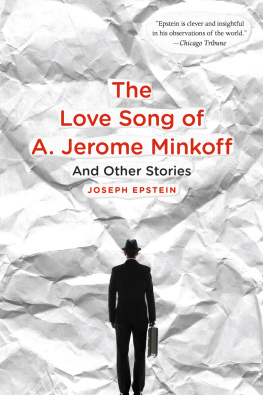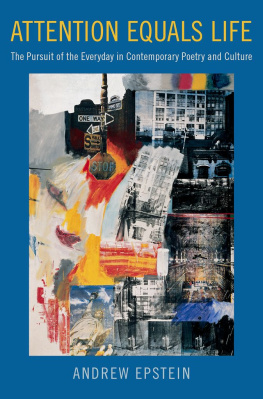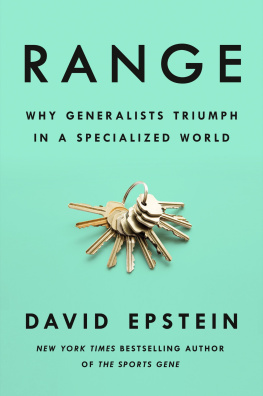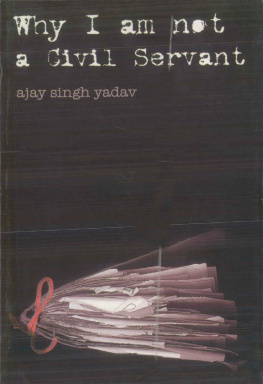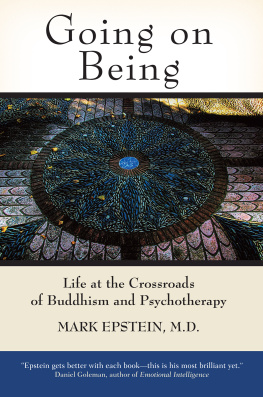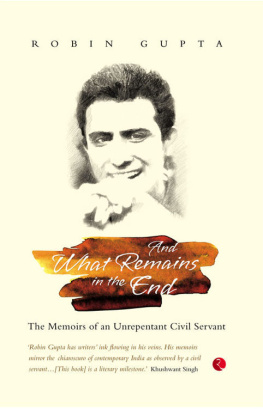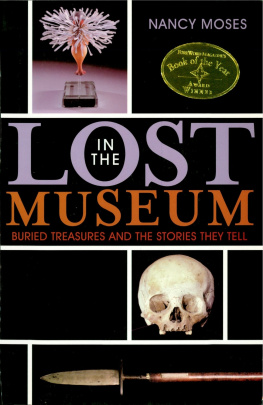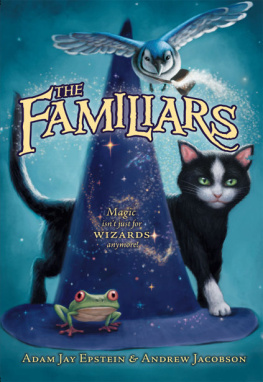Epstein - Gossip
Here you can read online Epstein - Gossip full text of the book (entire story) in english for free. Download pdf and epub, get meaning, cover and reviews about this ebook. year: 2011, publisher: Houghton Mifflin Harcourt, genre: Art. Description of the work, (preface) as well as reviews are available. Best literature library LitArk.com created for fans of good reading and offers a wide selection of genres:
Romance novel
Science fiction
Adventure
Detective
Science
History
Home and family
Prose
Art
Politics
Computer
Non-fiction
Religion
Business
Children
Humor
Choose a favorite category and find really read worthwhile books. Enjoy immersion in the world of imagination, feel the emotions of the characters or learn something new for yourself, make an fascinating discovery.
Gossip: summary, description and annotation
We offer to read an annotation, description, summary or preface (depends on what the author of the book "Gossip" wrote himself). If you haven't found the necessary information about the book — write in the comments, we will try to find it.
Gossip — read online for free the complete book (whole text) full work
Below is the text of the book, divided by pages. System saving the place of the last page read, allows you to conveniently read the book "Gossip" online for free, without having to search again every time where you left off. Put a bookmark, and you can go to the page where you finished reading at any time.
Font size:
Interval:
Bookmark:
Copyright 2011 by Joseph Epstein
All rights reserved
For information about permission to reproduce selections from this book,
write to Permissions, Houghton Mifflin Harcourt Publishing Company,
215 Park Avenue South, New York, New York 10003.
www.hmhbooks.com
Library of Congress Cataloging-in-Publication Data
Epstein, Joseph, date.
Gossip : the untrivial pursuit / Joseph Epstein.
p. cm.
Includes bibliographical references.
ISBN 978-0-618-72194-8
1. Gossip. I. Title.
BJ 1535. G 6 E 67 2011
302.2'4dc2 2010049804
Book design by Melissa Lotfy
Printed in the United States of America
DOC 10 9 8 7 6 5 4 3 2 1
The author is grateful for permission to quote from the following:
Historical Memoirs of the Duc de Saint-Simon, edited and translated by Lucy
Norton, reproduced by permission of the Estate of Lucy Norton.
Correspondence of Truman Capote: Copyright 2004 by the
Truman Capote Literary Trust; reprinted by permission.
FOR SHARON ROSEN,
elegant cousin
Talk, Mr. Nathaniel Alden had discovered, was chiefly
gossip, and gossip encouraged a morbid interest in
matters that didn't concern one.
GEORGE SANTAYANA, The Last Puritan
Mme de Saint-Simon, all goodness, tried in vain to
check our more outrageous utterances, but the brakes
were off, and there ensued the most fearful struggle
between the expression of sentiments that, humanly
speaking, were quite natural, and the sensation that
they were not altogether Christian.
Memoirs of the Duc de Saint-Simon
The two most interesting things in life are metaphysics
and gossip.
E. M. CIORAN
This is a book about gossip, that much-excoriated yet apparently unstoppable human activity that knows neither historical nor cultural bounds. Educated fleas may not do it, but all human beings seem to enjoy that conspiratorial atmosphere of intimacy in which two or three people talk about another person who isn't in the room. Usually they say things about this person that he would prefer not to have said. They might talk about his misbehavior in any number of realms (sexual, financial, domestic, hygienic, or any other that allows for moral disapprobation) or about his frailties (his hypocrisy, tastelessness, immodesty, neuroses, etc.). Or they might just wish to analyze his character, attempting to get at why his has been a life of such extraordinary undeserved success or such unequivocally merited failure.
Gossip has of course long had a ferociously bad press. Trivial has its subject matter been deemed, vulgar and wayward its practitioners inevitably designated. The intellectual equivalent of chewing gumsuch has been among the many unkind things it has been called. In the eighteenth century, the Duc de Saint-Simon, that busy courtier at the Versailles of Louis XIV provides a brief portrait of the type of the gossip, about a jumped-up servant and social climber named Saumery, that reads with the bold caricatural quality of a Daumier drawing: "He put on airs and looked important, never perceiving that he was merely ill-bred. He whispered into people's ears or shielded his mouth with his hand, often sniggering, and then promptly disappearing, always filled with gossip." One needs to add here that the Duc de Saint-Simon's Memoirs, chronicling all that went on in the court of the Sun King, themselves provide one of the most sustained acts of high-grade gossip on historical record. But gossip, make no mistake, always implies a judgment.
Yet however bad the odor it has generally found itself in, gossip persists. More than persists, its power continues to grow, its sway to become more pervasive. Why, despite all the religious and secular strictures against it, does it refuse to go away? How has it come about that gossip has increased its domain extravagantly in recent decades, so that where once it was thought an activity best conducted over a backyard fence, usually believed to be engaged in by women, it now dominates the news and has become all but synonymous with leaks in high places that can help bring down governments, and has found vast reinvigoration on the Internet? Why is the appetite for gossip apparently unslakable? Why is it so enticing? What are its true functions? Who needs it? Why has it increased so in our own day?
These are but a few of the questions that are taken up in this book about an activity whose full meaning not all of us understandincluding, as he sets out to investigate it, the authorbut that most of us continue to enjoy.
The history of gossip has never been writtenand it isn't, strictly speaking, written herebut if one were to sketch it out quickly, gossip would begin as an intimate and personal act most often carried on between two persons; then, with the advent of the printing press, it soon became public, with men and women earning their living discovering and purveying gossip to a mass audience, which of course continues in our day; the appetite for public gossip having been established, purveyors of it were never found to be in short supply, and in recent decades they have been immensely aided by the spread of cable television and the advent of the Internet. As the means, the technologies, of gossip have widened, so, naturally enough, has its influence.
If the reader of this book comes away with nothing else, I hope he will at least have realized that the major rap against gossip, that it is trivial, is no longer the main thing to be said about it, if ever it was. For gossip has come to play a larger and larger role in public life, and, as I argue, in ways that can thrum with significance and odd side effects.
I was drawn to the subject of gossip, first, because I took such pleasure in receiving it, having over the years had friends who were artful in conveying it, some of them working in fairly high places or living among putatively glamorous people. I am also drawn to the nature of gossip, which, though often false and not less often malicious, can also be a species of truth, deliverable in no other way than by word of mouth, personal letter, diaries and journals published posthumously, and not obtainable otherwise. Just because information is begun in gossip does not mean it can't also be true. Gossip's particular brand of truth is beguiling truth: beguiling in the sense of being enticing, charming, sometimes deceptive, and always in need of being strained through skeptical intelligence. Gossip can be mean, vicious even, yet also hugely entertaining, helpful, and importantand on occasion all of these things at once. The book you are about to read attempts to explain how and why this is.
Molly was a woman much on the telephone. When it rang she had just enquired: "Well, what's the gossip?"
DORIS LESSING, The Golden Notebook
C ONSIDER GOSSIP IN its bare bones, the mechanics of it, how it works. One person tells another person something about a third person that may or may not have a basis in fact. Like as not, what the first person has to tell goes to the absent person's reputation. Dealing with his personal life, it usually serves to diminish or tarnish that reputation. Why did the first person decide to tell it? Perhaps because he bears the absent person a grudge. Perhaps because the absent person's behavior, the subject of the item of gossip, angers or strongly puts him off. Perhaps because he finds the behavior he is describing too amusing or freakish or astounding to withhold telling. Perhaps because he is reasonably confident that he will be charming the person to whom he is relaying the gossip, who will be indebted to him for a few moments of entertainment. Perhaps because he senses that conveying this bit of information will increase the intimacy between him and the person with whom he is gossiping.
Next pageFont size:
Interval:
Bookmark:
Similar books «Gossip»
Look at similar books to Gossip. We have selected literature similar in name and meaning in the hope of providing readers with more options to find new, interesting, not yet read works.
Discussion, reviews of the book Gossip and just readers' own opinions. Leave your comments, write what you think about the work, its meaning or the main characters. Specify what exactly you liked and what you didn't like, and why you think so.


